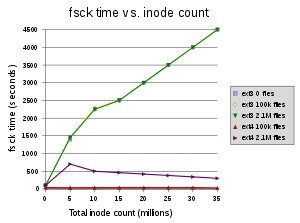find more information on ext2/3/4 filesystem

In my previous post on check filesystem regurlarly, I mentioned tune2fs. That tool give quite a lot of information. But just in case, you did not find what you are looking for in the output, then you can get much more information on these partitions with the dumpe2fs command.
Continue reading
